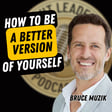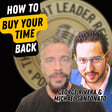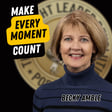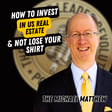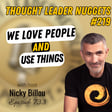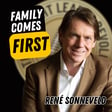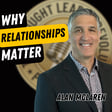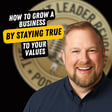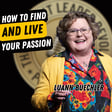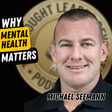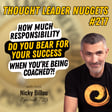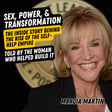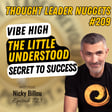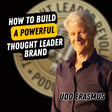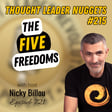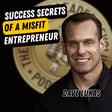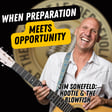
EP616: Crystal Adair-Benning - Creating A Thought Leader Brand Through A Book Funnel
“The real true gift is helping other people realize the power in their own stories.”
Have you ever wondered what it's like to write incredible stories and help others shine, all while staying completely behind the scenes? What drives someone to choose anonymity while crafting masterpieces that change lives?
Many of us wrestle with the balance between creative freedom and the need to step into the spotlight, especially in a world where visibility seems key to success.
Crystal Adair-Bening is a highly sought-after ghostwriter and Word Magic book coach who has ghostwritten four New York Times best-selling books. Known for her ability to help rebels, misfits, and change-makers bring their stories to life, Crystal's approach marries creativity with strategy. Her work ensures her clients stand out as thought leaders, while she remains comfortably behind the curtain, letting their stories take center stage.
Expert action steps:
- Start by writing it down.
- Make writing a habit, not a hobby.
- Focus on writing the best book, not accolades.
LinkedIn: https://www.linkedin.com/in/crystaladairbenning/
Websites: https://wordmagiccopywriting.com/
Visit eCircleAcademy.com and book a success call with Nicky to take your practice to the next level.

